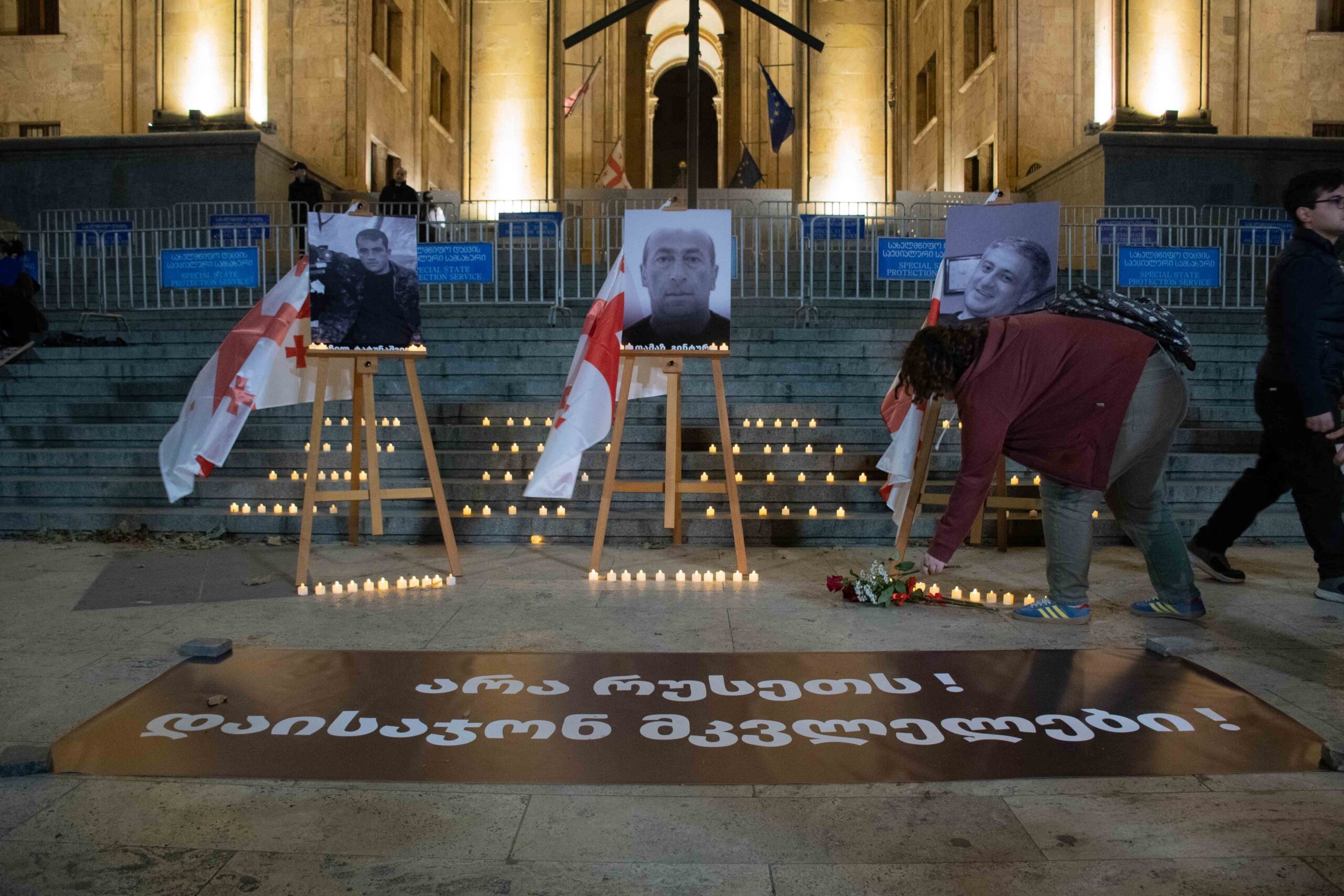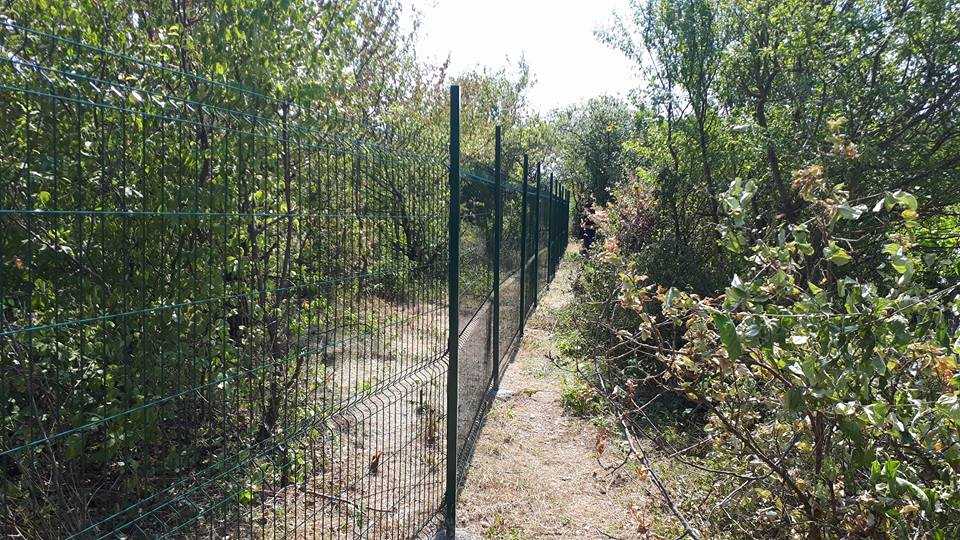
A Georgian man has been shot dead and another captured by Russian border guards in South Ossetia, reportedly while trying to reach a disputed church.
On Monday night, Russian border guards stationed in South Ossetia shot and killed Tamaz Ginturi, and arrested Levan Dotiashvili, close to Kirbali, a Georgian-controlled village which borders the Leningorsky district in South Ossetia.
Giorgi Doluashvili, a relative of Ginturi’s, told RFE/RL that Ginturi and Dotiashvili had been going to a nearby church under South Ossetian control to pray. He said Ginturi was hospitalised with gunshot wounds in his back.
South Ossetia’s security services, the KGB, stated within hours of the incident that the pair were ‘intoxicated’ and had resisted arrest ‘with an axe’. The KGB also accused the men of attempting to ‘run over a border guard’ while attempting to flee.
They said Ginturi was injured as Russian border guards opened fire at the vehicle in an attempt to shoot out its tires.
‘As a result, one of the violators was seriously injured and was transferred to Georgia for emergency medical care, and the second was detained’, read the statement.
Following the incident, the Georgian and South Ossetian authorities met in Ergneti, a village south of Tskhinvali (Tskhinval), where the Georgian side demanded the release of Dotiashvili and the punishment of the border guard who had fatally wounded Ginturi.
Georgian Prime Minister Irakli Gharibashvili condemned the incident, calling on the international community to react to the fatal incident and on the South Ossetian authorities to ‘cooperate with all parties in order to identify and punish the culprit’.
However, the ruling party also faced criticism after several leading members, including party chair Irakli Kobakhidze, Tbilisi Mayor Kakha Kaladze, and Parliamentary Speaker Shalva Papuashvili, made statements blaming the opposition United National Movement (UNM) for the incident, citing the legacy of their time in power.
In response, Levan Khabeishvili, the chair of UNM, called the fatality a ‘result of the [Georgian] government’s treacherous […] collaborationist policy’.
Meanwhile, President Salome Zurabishvili called the incident a ‘blatant attack on Georgian statehood’. She visited the Ginturi family in Kirbali the following day.
The fatal shooting was condemned by the EU, the EU monitoring mission in Georgia, and the US.
The U.S. condemns the killing of Tamaz Ginturi, a Georgian citizen, by Russia’s occupying forces in Georgia and we extend our condolences. This death is a stark example of the destruction caused by Russia’s ongoing occupation of Georgia’s sovereign territory and elsewhere.
— Matthew Miller (@StateDeptSpox) November 7, 2023
On Tuesday evening, opposition party Lelo and student movement For Freedom held separate demonstrations outside the Parliament in Tbilisi to protest the killing.
Ginturi is the first person to die at the South Ossetian border since the 2008 August War.
The patriarchate urges caution
While being under Georgian control, Kirbali was subject to a partial division as part of South Ossetia’s ‘borderisation’ in recent years, with Georgian citizens losing access to forests in the area, the village cemetery, and the Lomisa church.
This intensified after 2013, as South Ossetian authorities set up tens of thousands of kilometres of barbed wires, trenches, and border signs deeper into Georgia-controlled territory.
In 2018, Georgian officials began restricting residents from visiting the Lomisa church citing security concerns. However, it did not always discourage pilgrims from visiting the shrine during the Lomisoba festival, an annual event with mixed pagan and Christian rituals involving animal sacrifice.
In August, Davit Katsarava, the leader of Anti-Occupation Movement — Power in Unity, a vigilante group, published drone images showing that the entrance of the church had been sealed off.
Later that month, Georgian Orthodox Church spokesperson Andria Jaghmaidze criticised Georgian activists for what he described as provoking Russian authorities into restricting access to the church.
He made that statement while visiting another church, also named Lomisa, located just east of South Ossetia in Dusheti, after unverified reports emerged that Russian troops had also restricted access to that church.
Jaghmaidze underlined that the patriarchate had been taking care of various Georgian churches in South Ossetia and called on Georgians to exercise caution when visiting them.
‘For some time, it was possible to cross over to the village of Kirbali; pilgrims used to visit that shrine, but then someone unfurled a Georgian flag [there], which became a ground for [South Ossetian authorities] to resort to strict measures — sealing off the [church] entrance and limiting access to it’, said Jaghmaidze.
Soon after the latest fatal incident near Kirbali, Jaghmaidze reiterated his call to ‘treat each step with responsibility so that reckless actions don’t claim innocent lives and irreversible damage’.
For ease of reading, we choose not to use qualifiers such as ‘de facto’, ‘unrecognised’, or ‘partially recognised’ when discussing institutions or political positions within Abkhazia, Nagorno-Karabakh, and South Ossetia. This does not imply a position on their status.






